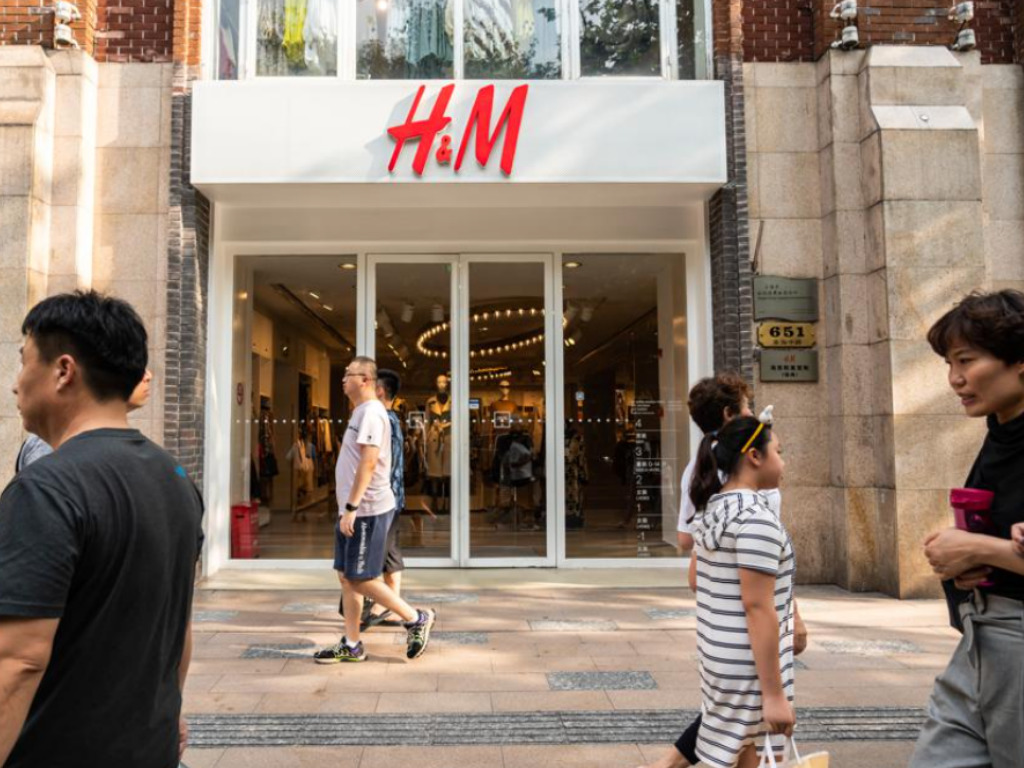3 Mins Read
China’s Community Youth League, a division of the Chinese Communist Party has called out the clothing giant H&M over its recent pledge to avoid sourcing cotton from Xinjiang, where ethnic minorities are allegedly forced to work in detention camps.
In August of last year, a coalition of human rights organizations called out the world’s’ largest fashion companies and retailers for using cotton from China’s Xinjiang province in their supply chains, accusing them of being responsible for crimes against the Uyghurs minority and other communities of Muslim people that they say are forced to work in detention centres.
The coalition claims that one in five cotton products sold across the world is directly linked to the human rights atrocities taking place in government-funded internment camps in the region.
Following these accusations, both H&M and Nike pledged to stop using Xinjiang cotton altogether.
This decision was met with heavy backlash in China, with the Communist Youth League, a youth division of the Chinese Communist Party accusing H&M of lying in a series of posts on the microblogging social media site Weibo. Translated version of the posts include statements such as: “It is making up lies and boycotting Xinjiang cotton, and it wants to make money in China in the meantime? Wishful thinking!”
Following these posts, H&M appears to have disappeared from Taobao, China’s most popular shopping site, whose parent company is Alibaba. Moreover, the Swedish fashion giant’s online store also seems to be out of service.
Even H&M’s former ambassadors in China, celebrities Huang Xuan and Victoria Song, showed their support for the party’s statements and stopped all collaborations with the brand.
This criticism comes soon after the Chinese government expressed anger about new sanctions imposed by the European Union, Britain and Canada for human rights abuses in the region, as well as the United States, which has already banned imports of all cotton and tomato products from Xinjiang.
In their defense against the claims, Beijing says that the area has “vocational training centers” where ethnic minorities are taught job skills and are helped out of poverty, and described the “false” allegations as work by people conspiring against China.
The Communist Youth League shared another meme post inspired by senior diplomat Yang Jiechi who recently told the U.S. that “this is not the way to deal with the Chinese people”.
Nike experienced similar blowback after it released its statement regarding not using Xinjiang cotton– famous Chinese actor Wang Yibo announced that he had terminated his contract with the sportswear leader, saying: “I firmly oppose any act to smear China.”
Apart from these brands, the internet “police” is calling on netizens to ‘cancel’ other brands that have pledged to avoid cotton from the region such as Uniqlo and the Gap. Even non-profits like The Better Cotton Initiative (BCI) have faced criticism for stopping licensing activities in Xinjiang.
These state-backed boycott calls are forcing multinational brands to choose between doing business in mainland China and committing to basic ethical principles such as the protection of human rights, a Sophie’s choice mired in controversy on both side.
Similar incidents have occured in the past. Following news of Seoul making plans to deploy a U.S. anti-ballistic missile system, Beijing stopped any tour groups travelling to South Korea and banned Korean cultural products.
The state media has also called for a ban on those companies that call self-ruled Taiwan island as a country, instead of Chinese Taipei, as the island is referred to on the mainland.
Lead image courtesy of Forbes.




